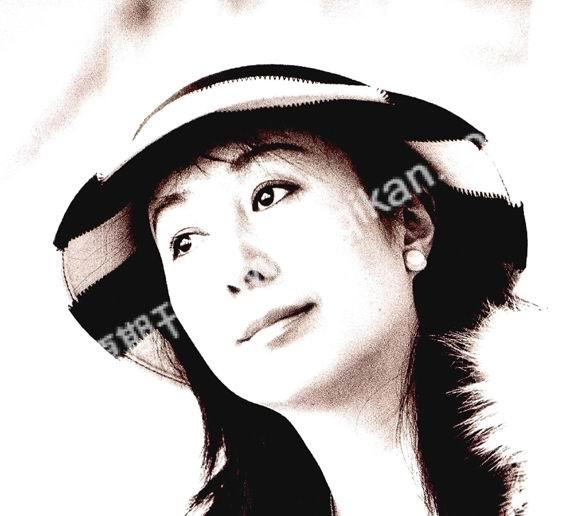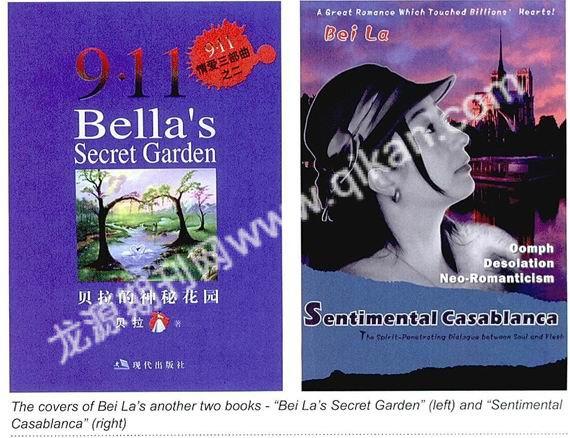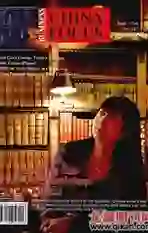Bei La,Vending the Neo-romanticism Ideals
2009-10-12
In the August Shanghai Book Fair, the Canadian Chinese writers new book “A Jewish Piano” took the first place on the Best Sellers List, with 11,000 copies being sold within only five days.

Bei La, known for her trilogy of “9.11 Celestial Wedding”, is praised as the representative of neo-romanticism literature by the academia and media. In these years, Bei La devoted herself to writing the “Jews in Shanghai” series. The first book “A Jewish Piano” has received much favorable comment from the critics since its appearance two years ago. Shanghai Translation Publishing House recently published the English version of this book, which is the first English version of a modern Chinese writers book. Her second book of this series – “Sausage Tenor” – is coming out soon. When the Chinese literary circle is infested with the smell of money, Bei La sticks to writing for soul and advocates being a noble in spirit.

The Shanghai-born writer Shen Lei turned up in the annual Shanghai Book Fair on August 15 to introduce the second coming of her 10th book.
Better known to hundreds of thousands of Chinese readers as Bei La, the author also introduced the English-language version of “A Jewish Piano” two years after its successful debut in her native language.
Bei Las work has been solidly placed in the neo-romantic genre by Chinese literary circles and mainstream media and she is no stranger to the trappings of fame, having published her first book, “The Night of Tokyo,” in 1991 and followed it with a number of best-sellers that have garnered a clutch of Chinese writing awards.
Her “A Jewish Piano” tells an epic about the Shanghai in a Jewish memory. It describes the joy and sorrow associated with the topsy-turvy relationship between a Jewish pianist exiled in Shanghai and an orphan from the Chinese Red Army during World War II in the course of their love affair across Europe and Asia.
A major backdrop to the story is the haven of Shanghai where Jewish refugees were given shelter and comfort away from the persecution of Nazis. In the story we can see the pain from the war and the power from the tragedy, as well as the poetic thoughts and the holy beliefs. This book, on behalf of the rising China, tells the world the Chinese peoples peace-loving nature and their openness to the fusion of different ideas and cultures, which were descended from the past and will not be changed in the future.

The author also wants to bring into sharp relief the Jewish firm belief in God, ardent aspiration for life and great admiration for knowledge, which were not perished even in the darkest period. These spirits are worth learning for the Chinese people living in the fast-developing China devoid of beliefs.
The academia praised this book as “a masterpiece that can be said to be great” or the Chinese “Les Miserables”. For the authors hometown Shanghai, where the World Expo will be held, this book has an extraordinary international meaning – it shows the world the everlasting resplendence of Shanghai in the history.
“I used to write short stories but after the tragedy of September 11 in the United States when one of my friends, a finance sector worker, was killed in the towers I started to write novels,” said Bei La.
Bei Las pre-tragedy output was three modest books of short stories but she has since written seven novels, all with a tragic theme, including a romantic trilogy around the 9/11 events.
She learned piano at a very young age in Shanghai and Japan where she performed in minor concerts, then emigrated to Canada with her parents and taught piano there.
As an accomplished pianist for a significant period of her life, Bei La turned her talented fingers to a different keyboard to turn out words rather than tunes.
“Once I started to write books I realized that not everyone could understand the feelings I wanted to convey in the music I played. But by writing a novel I can express more deeply what I want to say to readers and they understand it easier,” she said. Her piano now sits in the background at home.
She did two years research into this story at New Yorks Columbia University Library and the East Asia Library at the University of Toronto, working through many personal papers and biographies about the Jewish in Shanghai. She subsequently met older residents of Shanghai who had experience of Jewish refugees during the era.
She then spent six months writing “A Jewish Piano” using the circumstantial facts as a basis for the fiction.
“I believe this is the first fictional treatment of this topic, not only in China but the wider world. I havent found another that talks about the Jewish in Shanghai during this period,” she said.
The inspiration for the story came from a Canadian merchant friend whose Jewish parents lived in Shanghai in the period covered in the book. The merchants father had fallen in love as a single man with a beautiful, wealthy Chinese woman.
The mutual passion they shared ultimately went nowhere for a variety of cultural and religious reasons that spiraled into a sad outcome and the man eventually married a Jewish woman.
Bei La was inspired to fashion that core experience into a story that shows love can cross cultures and religion but, in the end, a Jewish man must marry a Jewish woman.
From her point of view love can overcome everything – age, religion, culture and the rest – but marriage is hard.
She intends to write more books on the same period theme and has a patriotic incentive for doing so, to demonstrate that Shanghai is a tolerant city.
Bei Las next book “Sausage Tenor” tells a story happening in 1938, when a tenor in the Vienna Straus Opera emigrated to Shanghai to seek refuge with thirty thousand Jews. He opened a restaurant in Huoshan Road after arriving in Shanghai. The restaurant had a very humorous name – “Sausage Tenor”, and its sausages were quite popular. The background and people are real. But the love tragedy between the tenor and a wealthy Chinese woman is fictional. The book is full of tragic power and mainly expresses that the Jews still kept their aspirations for music, life and God even when they were suffering from pain and hunger.
Wang Ning, a professor at Tsinghua University and an authoritative scholar of comparative literature in China, thought highly of Bei La. He said: “Bei La is the creator of a modern Utopia with classic feeling, because her deep care for the ordinary people has reached the level of caring for the fate of human beings. The author is trying to find a kind of eternal and utopian love treasured up in the mans world. It can overcome the hurdles between different nations or people, genders or races, skin colors or languages, as well as ideologies or religions. Undoubtedly, no contemporary writers pay as much attention to the common hazards of human beings as Bei La and none of them has such a deep insight and description of peoples psychological world like her. As the representative of the new generation of romantic authors, she calls for the sincere love in the world with her mild voice and strong literary power. She not only writes the works with high literary value, but also expresses her extraordinary care for the painful history that people have gone through. I believe that with the deepening of the studies of the critics and scholars, the value of Bei Las novels and her own great potential in literature will become more and more obvious.”
“Even in the worst times of World War II when people didnt have a lot to eat they extended the hand of friendship to help foreigners,” said Bei La. “Despite having little enough to eat themselves they would share it.”
The second reason is that she believes Chinese young people lack strength and character and they can learn from the Jewish experience how to survive in tough times through faith, group spirit and unity.
By learning things from history, such as the Jewish people surviving in Shanghai during the period covered by her writing, they can become a lot stronger, she said.
Bei La is an imposing woman whose writing career has blossomed from the legacy of the terrorist attacks on the twin towers in New York.
“Tragedy has affected me too much and I can not forget it,” she admitted, adding that she finds it the best way to express her feelings.
“This is not a happy book and its got a sad ending. All my books have sad endings,” she said.
“People always experience happy things and they cannot remember all of them. But tragedy happens and rather than forget, they should find spirit from it to live on.”
Some copies of the hard-cover, 396-page novel will be distributed to agents and publishers at the book fair in Shanghai in advance of its formal debut at the book worlds supreme marketplace, the Frankfurt Book Fair in October.
杂志排行
中国经贸聚焦·英文版的其它文章
- Huang Guangyu Excessive Assets Sealed by Hong Kong Court
- Exhibitions in November2009
- Jiang Hongkun Appointed as Party Secretary of Suzhou
- He Tao Became the President of Bailian Group
- The Philippines:Your Absolute Choice Chosen Absolutely
- The Philippine Pavilion at the Shanghai World Expo 2010:Performing Cities
